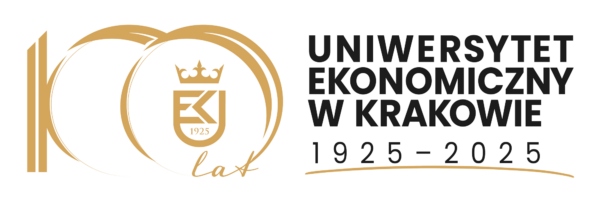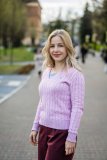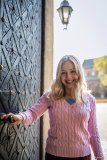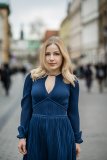Emilie grew up near the cocoa farm in northeastern Brazil, though she’s originally from Germany. Being shaped by both cultures has broadened her perspective.
She studies International Business at KUE, combining her passions for languages and economics and also she leads the Green Deal Science Club.
Outside of university, she teaches languages online, plays the piano, draws, reads and loves to travel.
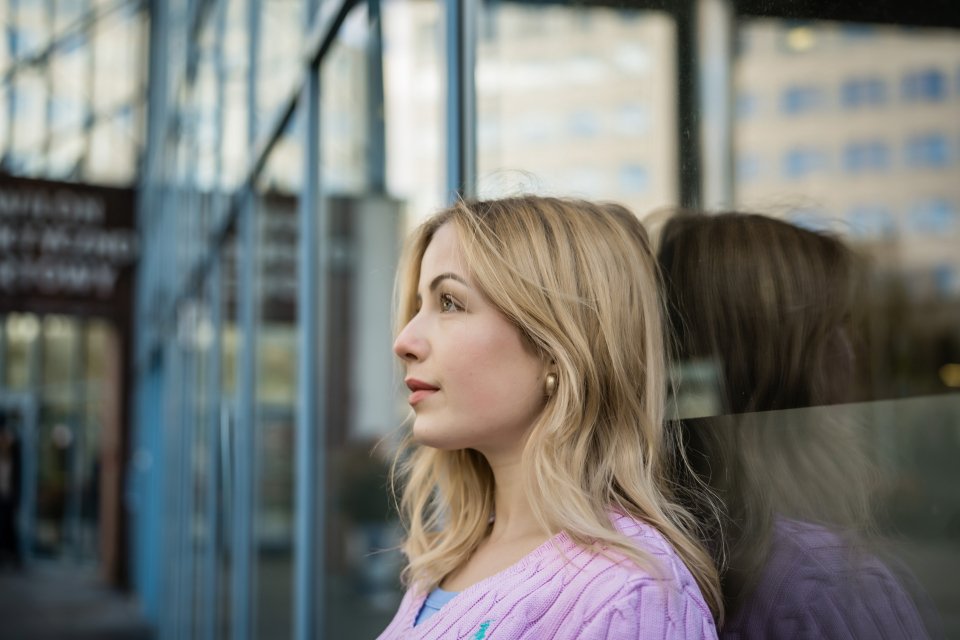
Welcome centre: Hello! Good to have you on board! We can't wait to hear your story.
Emilie: Hi! I’m excited about it too!
Welcome centre: Please tell us something about yourself.
Emilie: I’m Emilie, originally from Germany, but I spent most of my life growing up in Brazil. I’d say that both cultures have shaped who I am, both in terms of personality and perspective. I was raised on a farm on the northeast coast of Brazil, where I also concluded high school. After that, I decided to pursue my dream of studying abroad.
Welcome centre: That’s such an interesting background! Growing up between two cultures must have been a unique experience and probably taught you a lot along the way. What would you say you’ve learned from being shaped by both cultures?
Growing up between two cultures shaped who I am, both in personality and perspective
Emilie: Growing up on a cocoa farm on the northeast coast of Brazil fostered my interest and knowledge in agriculture, permaculture, gardening and practical approaches to sustainability. I believe that having grown up with both Brazilian and German culture has broadened my perspective and given me a deeper cultural understanding.
Welcome centre: Being shaped by those cultures sounds enriching. And yet you still chose to explore life in a completely different one. What motivated you to make that move?
Emilie: As I mentioned, it was always my goal- which is why now I study International Business at KUE! I chose this programme because it combines two of my long-standing interests: languages and economics. Regarding languages, I do speak five fluently and I’m currently working on my Polish. For as long as I can remember, I’ve always been learning languages, as the ability to communicate with and immerse myself in different cultures truly excites me. When it comes to economics, I used to ask my dad about things like investments, the financial system and stocks. As I grew older, I realized I wanted to dive deeper into those subjects.
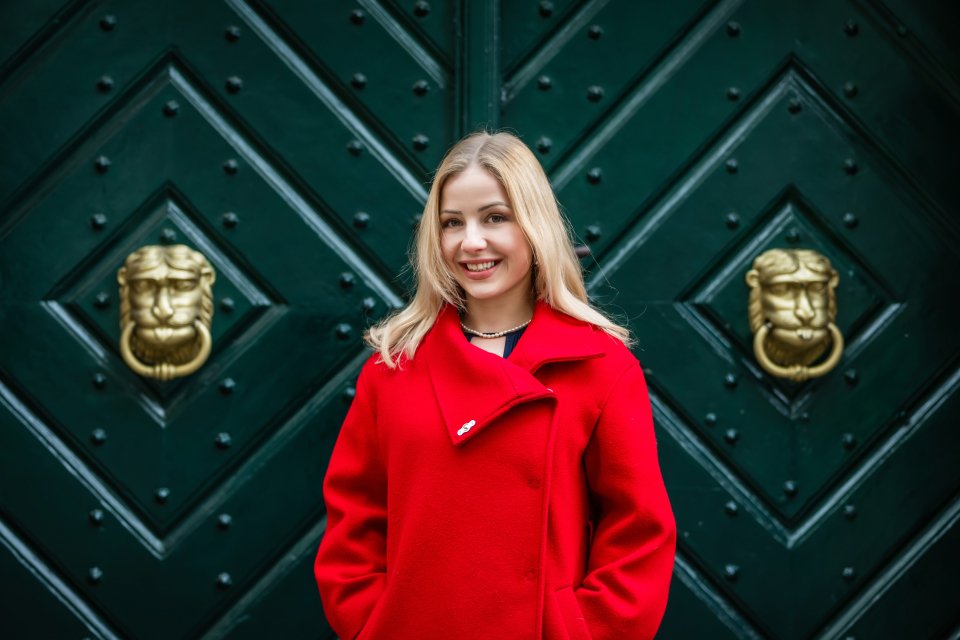
Welcome centre: It’s great to hear how your studies tie into your passions. Are you also involved in any activities or clubs at KUE that help you explore these interests further?
Emilie: As to my extracurriculars, I joined the Green Deal challenges Science Club right from the start of my studies and I was elected to become president shortly after. Although at the beginning I was pushed to take on the role, I’ve found that I enjoy taking on the responsibility and the opportunity to organize and lead to some extent. I am also part of the club’s financial department, where I get to practice issuing financial reports, which is not my greatest passion, but it’s definitely an invaluable skill that teaches me a lot.
Welcome centre: That sounds like a full schedule. And what do you do when you’re not busy with university or the club?
Emilie: Apart from my studies, I work a few hours a week as an online German and Portuguese teacher. It’s not my dream job but I enjoy it. Teaching and helping students is satisfying, and my extroverted personality goes well with it. I also appreciate the flexibility to choose my working hours, which allows me to focus properly on my studies and hobbies.
Welcome centre: Sounds like you can balance work and studies very well. With such a busy schedule, how do you like to spend your free time?
Emilie: In my free time, I enjoy learning languages, reading (from Charles Dickens to "how to" guides to the Bible), doing pilates almost every day, going for long walks, trying new foods, cooking, playing the piano and drawing. I also love to travel, even on my own. One could say that I am slightly a jack of all trades or at least an eclectic person.
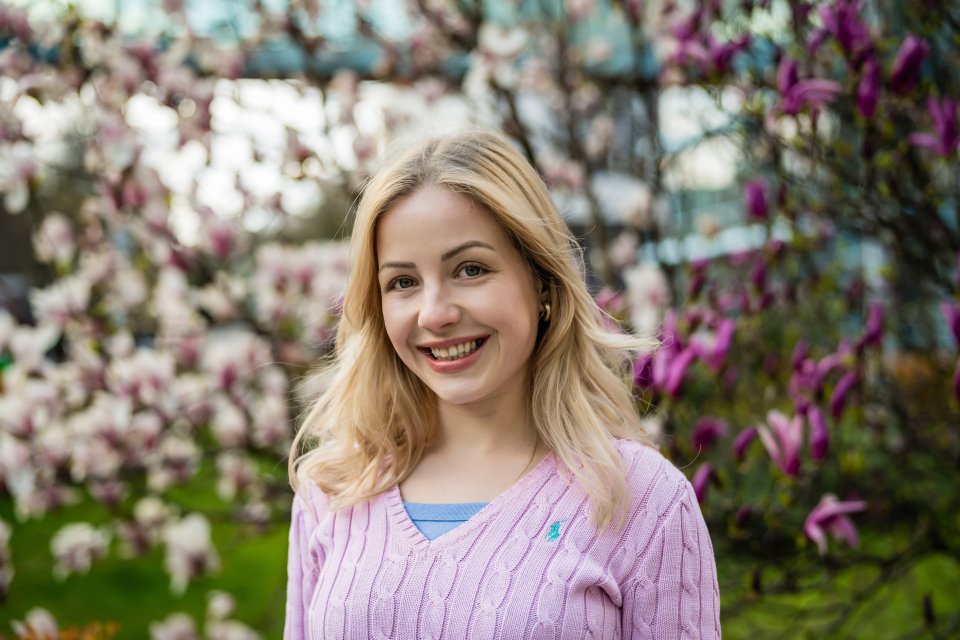
Welcome centre: It’s impressive how you manage to balance all these activities alongside your studies. Since you mentioned wanting to immerse yourself in a new culture, what made you choose Kraków as your new home?
Emilie: What first brought me to Kraków was my appreciation for historical architecture. I always saw myself in a city with a rich cultural background and beautiful buildings that inspire and uplift. Kraków became my top choice because of its perfect size (not too overwhelming nor too small, I am a country girl after all!) and it’s full of green areas that makes the city more charming. On top of that, it’s an extremely safe city and I’ve never felt unsafe when walking home at any time of the day (or should I say: the dawn).
Welcome centre: Kraków really seems to be a great match for your personality! And what about your studies, what made you choose KUE in particular?
Emilie: I chose this university because it was the only one in town offering my programme in English. It also felt like a smart decision to study at a university that specializes in economics, as this potentially means they know what they’re doing.
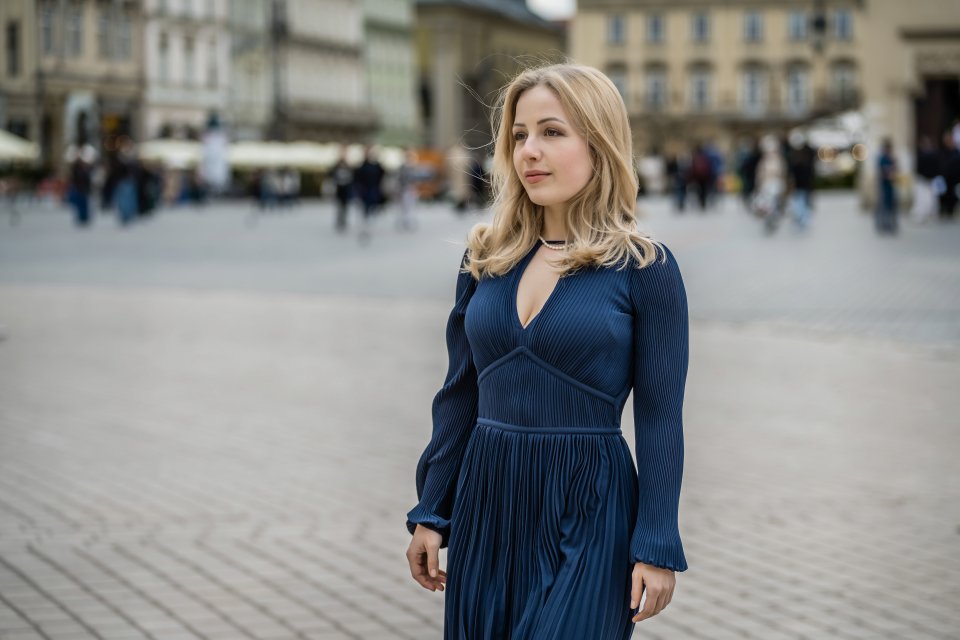
Welcome centre: That makes sense. Looking back to when you first started, what would you say was the biggest challenge in the beginning?
Emilie: The biggest challenge was arriving one day before the start of classes straight from Brazil and then living in a hostel for a whole month because it was really hard to find an apartment. Also I didn’t know anyone in Poland who could help me with this. It was just a very intense time.
Welcome centre: We can only imagine how tough that must have been. The start can be especially difficult when you don’t have anyone to guide you.
Emilie: The second most challenging thing was, or maybe still is, the language barrier when it comes to bureaucracy. It’s sometimes really hard to find out where you need to go and what is expected from you, because the websites of governmental agencies are, in my opinion, really hard to navigate. Things like no English-speaking receptionist in the foreign registration department for also don’t make it any easier. But I have to say, most of those things turn into a fun anecdote you can tell for the rest of your life. It is nothing compared to all the good things you gain.
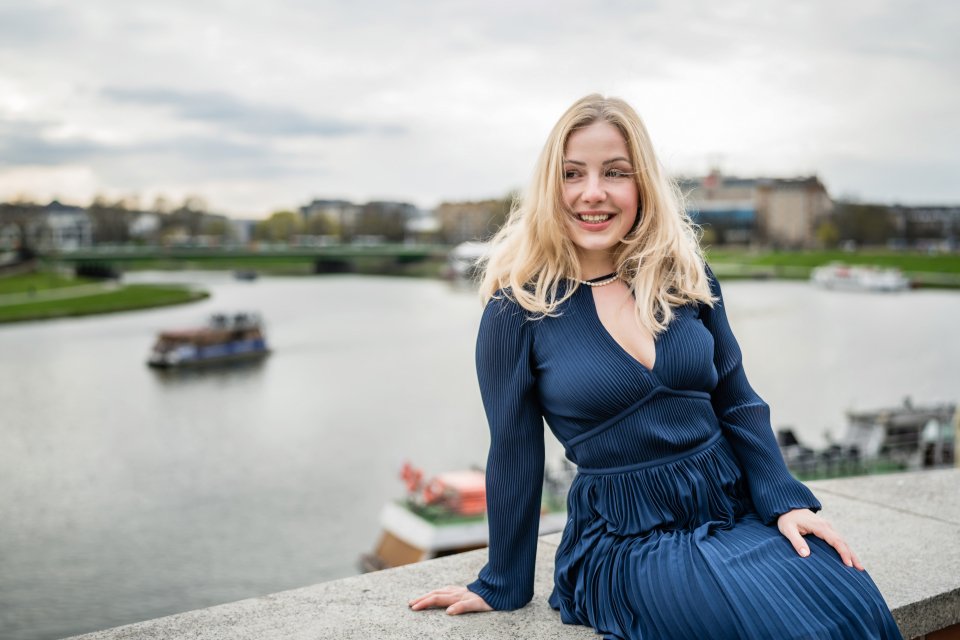
Welcome centre: Keeping that kind of mindset really makes a difference when dealing with challenges abroad. Looking on the bright side isn’t always easy but it clearly pays off. What about our university - what would you say you enjoy the most here?
Emilie: I love the campus, especially the main building, of course. There’s something so dignified and majestic about walking through the main entrance. As the weather gets warmer, the gardens become incredibly beautiful, especially with all the blooming roses. I also really appreciate the wide range of physical education classes. Thanks to that, I’ve had the chance to try aqua fitness and tennis for free. I’ve also met some great professors, truly inspiring and impressive ones who motivated me to do my best. And finally, the exchange programme offer is huge. There are some incredible opportunities that are actually accessible and the staff in charge are really helpful, which makes it easy for anyone to explore these opportunities.
Welcome centre: It’s great to hear that you’ve found so many things to appreciate at our university. However, is there anything you think could be improved here?
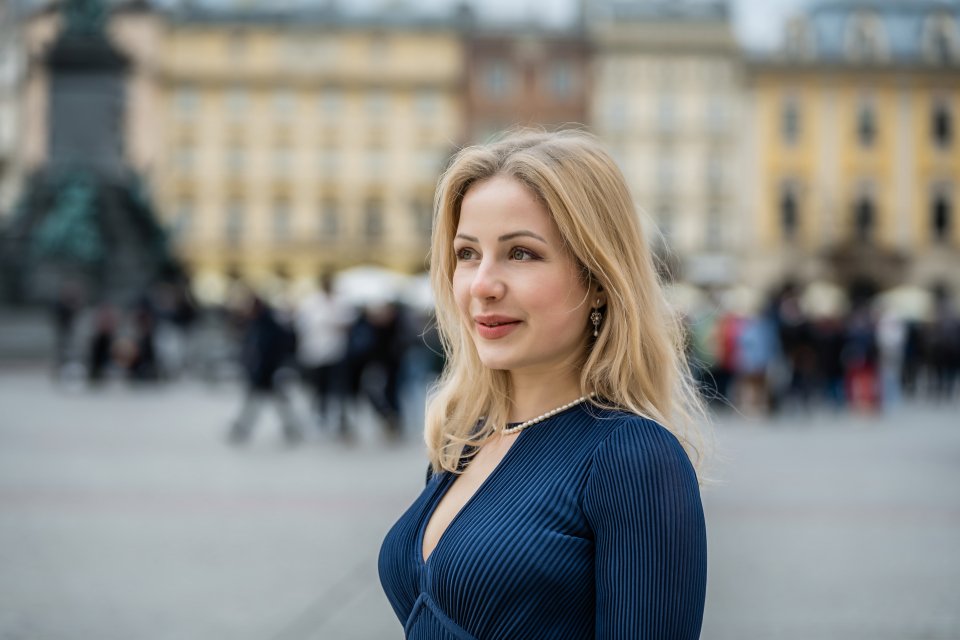
Emilie: What I dislike is the lack of academic integrity among students and the fact that many professors don’t seem to address it either. I also notice lack of organization and guidance for freshmen – I often found out important information only because a classmate had learned it from older students. Lastly, some professors don’t have a sufficient level of English to explain more complex topics or pointing out subtle differences.
Welcome centre: Hearing about these challenges gives important insight into the student perspective. Do you think that your experiences studying here will be valuable for your future?
Emilie: Of course it will be helpful! Learning Polish, my first Slavic language, opens doors to understanding other Slavic cultures and languages. Living here allows me to experience Polish traditions and lifestyle in a way a short visit never could. Studying abroad cannot hurt your CV and helps personal growth. It makes you more independent, organized and outgoing, since you have to handle everything yourself.
It's normal to be afraid but don't let fear stop you from having amazing experiences
Welcome centre: Gaining that kind of independence and intercultural insight is something that shapes you long-term and stays with you well beyond your studies. Last but not least, if you could say one thing to students who are thinking about studying abroad, what would it be?
Emilie: I would say it’s normal to be afraid. The most important thing is not to let that fear stop you from having amazing experiences.
Welcome centre: Important point, sometimes you just have to be a bit scared and go for it anyway.
Emilie: Exactly, that’s the mindset that helps you keep going.
Welcome centre: Thank you, Emilie, for taking the time to share your experiences. It’s been a pleasure getting to know you.
Emilie: Thanks a lot! It was great to chat with you.
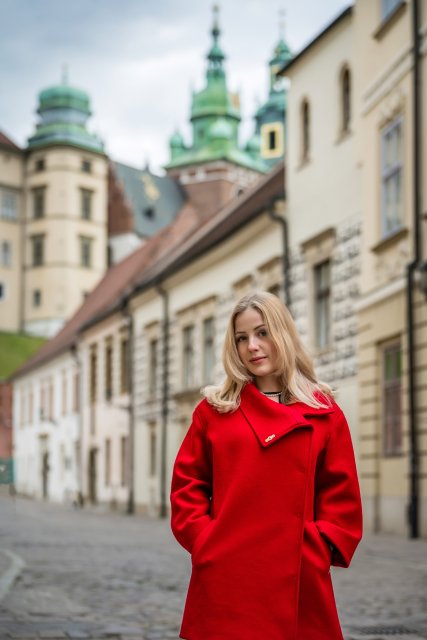
Welcome Centre UEK
Welcome Centre UEK – a multilingual unit at Krakow University of Economics (KUE), providing professional service and help to foreign students and applicants, as well as guests and doctoral students.
The Project is financed by the Polish National Agency for Academic Exchange under the Welcome to Poland Programme.

